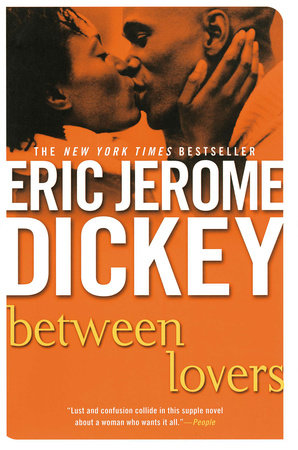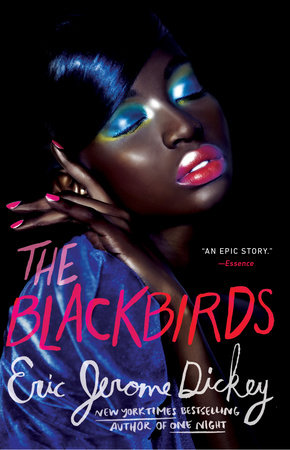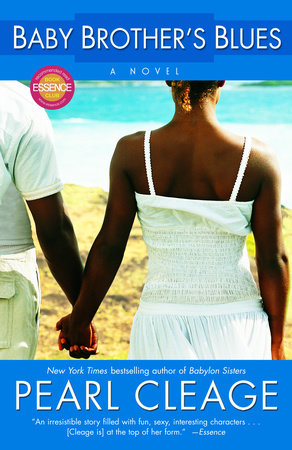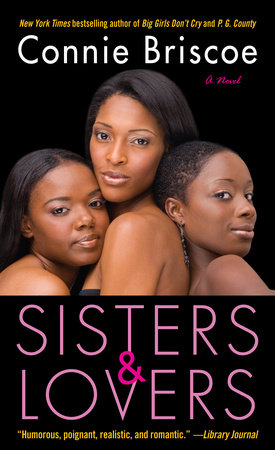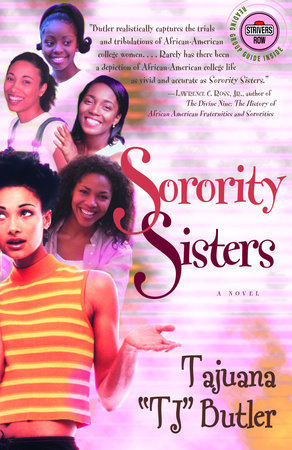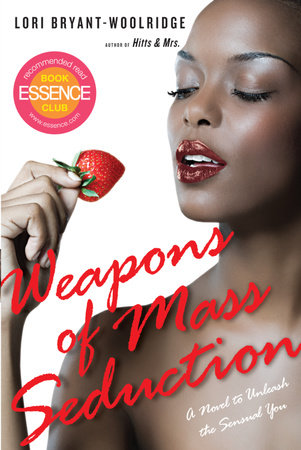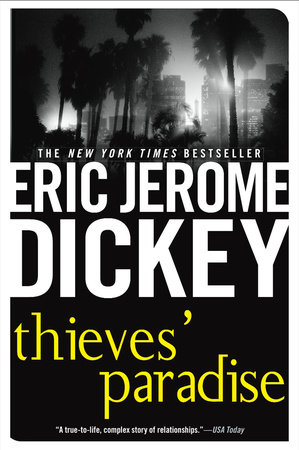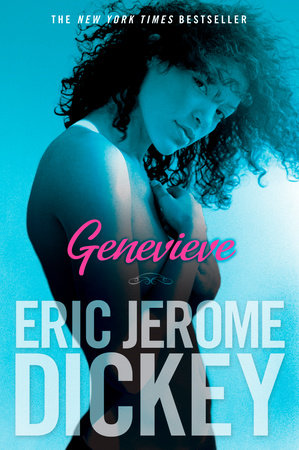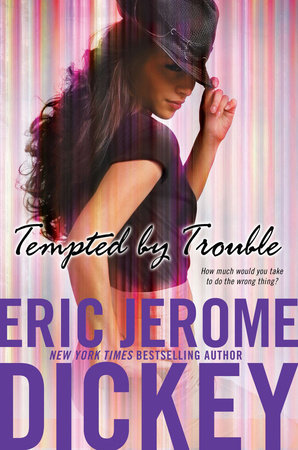A Conversation with Pearl Cleage
Q: Atlanta is known as “The Black Mecca,” especially for young, educated Black professionals. Yet I read a recent article saying that it’s one of the most dangerous cities in the nation. In this novel, you have the intriguing premise of Atlanta’s West End in particular becoming transformed into a safe haven for women. What made you want to explore that in fiction?
Pearl Cleage: I have lived in southwest Atlanta for almost thirty years. I love my neighborhood and I love my neighbors, but we have had to deal with all the problems of any African American urban neighborhood. Crack, street crime, car jacking, and burglaries all create an atmosphere that is less than peaceful. One day as I was sitting on my front porch on a beautiful spring day, I thought to myself how perfect it would be if southwest Atlanta was a safe zone for women. If we could walk around without fear and leave our doors unlocked. It was a wonderful fantasy and from that initial thought came the germ of the novel.
Q: I heard you say at a book signing that you write love stories. This is a love story that pulses with an underlying sense of urgency about the state of our communities. Would you say that you’re mixing romance and politics, and if so, why?
PC: I can’t help mixing romance and politics! I’m always trying to write about real women like the women I know. In a place like Atlanta, where women are in charge of so many things, including the mayor’s office, I am constantly shown images of strong black women, many of whom are my friends! I know that these women do their jobs as elected leaders and community leaders, but I also know they do those jobs while dealing with relationships, children, family issues, and all the other things that challenge the rest of us. Their lives–our lives!–are not divided into separate, discreet entities. It is all one piece. I think romance and love are important elements in our lives but they don’t take place in a vacuum. Our challenge as modern women is to figure out how to change the world, run the world, and be passionately in love, all at the same time!
Q: You’re very upfront about Regina’s flaws, including her past drug addiction. I’m curious about why you didn’t make her more of the super-dynamic, high-achieving sister so common to Atlanta, you know–the kind of woman most people might expect an author to pick for a role model.
PC: I’m not trying to put forward role models. I’m always looking for interesting characters that we can recognize as “real.” That is, people like us, with good points, bad points, strengths and weaknesses. As as writer, finding a character with a flaw allows me to take the reader on the journey the character must travel to get stronger. I wanted people to be able to see that Regina wasn’t perfect, but she was working hard to put her life in order. If she had been without problems at the start of the story, we wouldn’t have cared about her as much, or rooted for her as hard.
Q: Cocaine is one of the many things devastating Black communities. Yet you never veered into criticizing Regina for her drug abuse or preach against it in the book. Were you ever tempted to do that, and if so, how did you overcome that temptation?
PC: I was never tempted to be judgmental of Regina’s problems with cocaine because I have known many people who struggle with drug addictions and the last thing they need is someone casting a judgmental eye when they are struggling to “get right.” I like Regina and I know that she never intended to do the things she did when she was addicted. Addicts never do. What I respect about her is that she was able to recognize that she needed help and find it. It took a traumatic event to shake her up enough to go into rehab, but she did it and that made me like her. I don’t think it’s a writer’s job to preach to the reader. I think my job is to create believable characters who allow us to see ourselves more clearly.
Q: It’s interesting the way you complemented Regina’s straight-shooting, down-to-earthiness with Aunt Abby’s new-age-spiritual vision vibe. Now that you, like Aunt Abby, have reached the life-stage of being a visionary advisor, what do you see for our young Black men and women, especially in their relationships with each other?
PC: I wish I could see a vision that would give me a clue about our young people! I watch them outside my window, waiting for the school bus every morning in their baggy jeans or skin-tight T-shirts and I wonder what they see ahead for themselves. One of the things that is so important in my book is that the women be able to communicate across generations. The older women in the gardening association, the young women just starting their periods, the middle-aged women coming into their own–all of them had to find a way to talk honestly about what was going on in their lives. If I have any vision, it is of a time when women can communicate more honestly about the stories of their lives. I think what we find when we are able to do that is that our stories are a lot more similar than they are different.
Q: Blue is intriguing. How did you come to create an ebony-skinned brother with blue eyes? And do you know any men like Blue in real life?
PC: I wanted to give Blue a startling characteristic that would immediately get Regina’s attention. There aren’t a lot of blue-eyed, darkskinned black men around so I thought that might be an interesting combination. The contrast made him seem otherworldly in a way and since he was speaking to her across several lifetimes, I thought the eyes were a nice touch. A lot of Blue is based on my husband, Zaron Burnett, especially his dedication to the safety of black women and children and his complete understanding of what it means to be a good man. I also borrowed his style for Blue’s hats and overcoats, as well as the past life connection. The truth is, all the good guys in my novels have characteristics that I borrowed from my husband. Eddie’s dreadlocks and romantic sweetness in What Looks Like Crazy . . . , Nate’s weightlifting and quest to really understand women’s issues in I Wish I Had A Red Dress, and Blue’s unequivocal acceptance of his role within the group in Some Things . . . are all things I’ve culled from Zaron.
Q: Regina and Blue knew each other in a previous lifetime. Do you believe in reincarnation? And how have readers responded to this theme, which is sometimes frowned upon in our more traditional religious belief systems?
PC: I would like to believe in reincarnation, but I’m still not sure that I do. Several years ago, my husband, Zaron, started talking about knowing he was an emperor in his last life. Since he’s not a New Age kind of guy, I was intrigued by what made him think that this was true. He described whole scenes to me and after awhile, he seemed so convinced, I started thinking about what it might be like if this were true. He wisely answered yes when I asked him if he remembered me from that past life and that gave my imagination what it needed to work with with Regina and Blue. Some people have been skeptical about the past lives, but I think since Regina is initially skeptical, too, it gives readers a chance to get used to the idea at the same time the character comes to terms with it. I wasn’t trying to convince anybody that they should believe in reincarnation. I just thought it was an interesting plot device if I could make it real enough to get folks to at least consider the possibilities. After that, they can come to their own conclusions, but it wouldn’t it be romantic if it was true?
Q: Let’s talk about Beth. There are plenty of sisters like her–tough, sharp, driven, no-nonsense divas–in Atlanta and other chocolate cities. Do you think that sisters like this have traded in their softness for a coat of armor? And what are the romantic prospects for women like Beth?
PC: I think Beth has made her choices based on what she could control. It is easier to control your work than it is to control your heart. For Beth, her son was all the emotional outlet she needed, apart from her audiences. When he was gone, she had no way to replace him. I don’t think she is a bad person, but her life demanded that she look out for herself. After years of that, she became harder and harder, although it wasn’t always obvious. I think at this point, she’s not going to be looking for romance. She’s going to try to get back to her best self and get to know that grandbaby!
Q: You have waved a kind of literary magic wand and created a near-utopian vision of a safe, loving Black community. Though it is threatened by violent forces, it seems to have a solid core of conscious men who are dedicated to keeping it righteous. You live in the real-life version of this same community–Atlanta’s West End. How did you conjure up such an ideal vision and how did you sustain it in the contrasting world outside your door?
PC: I’m a dreamer. I am always trying to see the best in us as a community of people and to ask myself what my role might be in making that community become a reality. When I see problems outside my window, I don’t despair of things ever getting better. I try to imagine what “better” might look like. I try to remember what a neighborhood of intact families might look like. I recreate the best of what a love affair can be. I think that is part of what I do as a writer. I hold up a mirror and say, “this is how we look to me,” but I also hold up an image of what we look like in my mind’s eye. I always remember in Ossie Davis’s wonderful play Purlie Victorious that the title character comes to church, looks around at the congregation and says, “Tonight my friends, I find in being black a thing of beauty.” I feel that way, too. I want my books to show us, us . . . but better.
Q: You raised a daughter and for years you taught at your alma mater, Spelman College. During that process, what did you teach your own daughter, Deignan, and your students? What did they teach you?
PC: I think that what I always try to convey to young women is an awareness of their own possibilities. I wanted my daughter and my students to see that they are living in a wonderful time for black women in a place where we have a voice in how we live and how our community operates. I remember asking my students if they didn’t want to run the world one day and they were startled by the question. They didn’t want to think of “running” things, taking charge, being the one sitting in the big chair. This surprised me and I reminded them that someone was going to be in charge and if they wanted things to work in a fair and just way, they had to get in there and make it happen. I also tried to impress upon them that looking for love based on material things and outside criteria was not the best way to find it. Instead, I urged them to look for a man who was capable of loving and protecting them and their children. I urged them to tell the truth, laugh as much as they cried, and trust their instincts. My students always taught me as much as I taught them. About patience and honesty and telling what you know. My daughter continues to teach me how to reach deep into my own heart and mind to give her what I’ve learned and tell her what I know in a way that gives her the benefit of all that without assuming my way is the only way.
Q: A theme that I’ve noticed in all three of your novels is a sense of the leading men as kind of nobly scarred heroes. They’re street-wise, tough yet tender, and very much about cherishing and protecting women. Do your readers ever ask you where to find these brothers in real life?
PC: My readers often ask me if they can clone my leading men! I understand why. I think it’s the combination of tender and tough, gentle and strong that appeals to my readers. It is also the combination that appeals to me! I think part of what I am always trying to do is to encourage us to look at the men around us differently. We have to find a way to make a space for reconciliation and honesty. We have to begin to value what the men we love can bring us aside from material things. We have to value the beauty of their songs and their souls as much as we value their status in the outside world. I am a believer in the possibility of love and I always want my characters to find a way to love each other in the midst of all the challenges life can throw at them. When they can find that space, I know they’ll want to stay there and my readers will, too!
Q: What song or songs were you playing or hearing in your head when you wrote this book?
PC: I was playing a lot of Cassandra Wilson when I wrote this book. She has such a mystical sound that she was what brought Aunt Abbie forward, I think. I also listen to a lot of Bob Marley and some Etta James. If you can’t write a love story listening to sister Etta sing “At Last”, you ought to quit trying!
Q: What is the one thing you want your readers to know without a doubt, when they have finished reading Some Things I Never Thought I’d Do? And what do you want them to do?
PC: I want them to know that we can have peace where we live if we decide we really want it. I want them to believe that they can change the places where they find themselves and that love may appear when you least expect it, in a form you never had in mind, and if you can open yourself to it, it may be pretty amazing.






